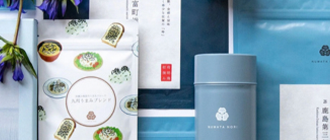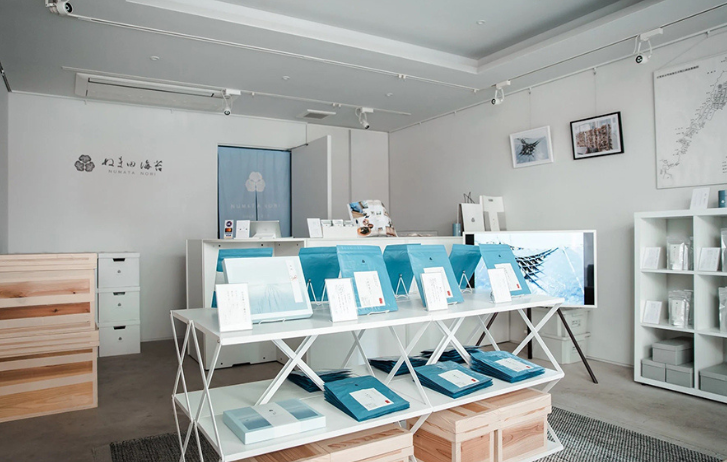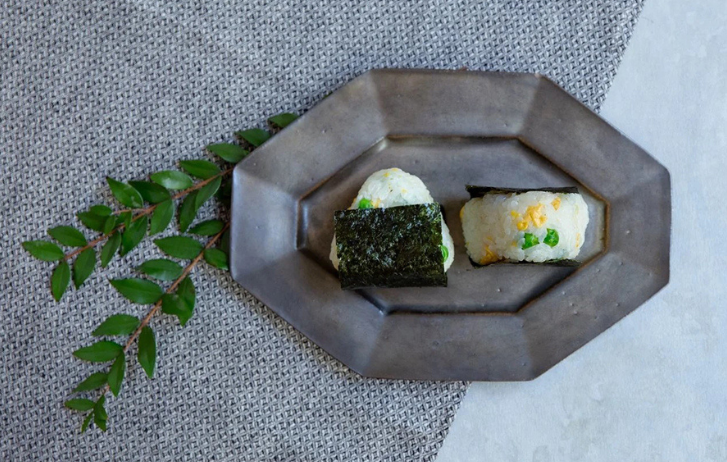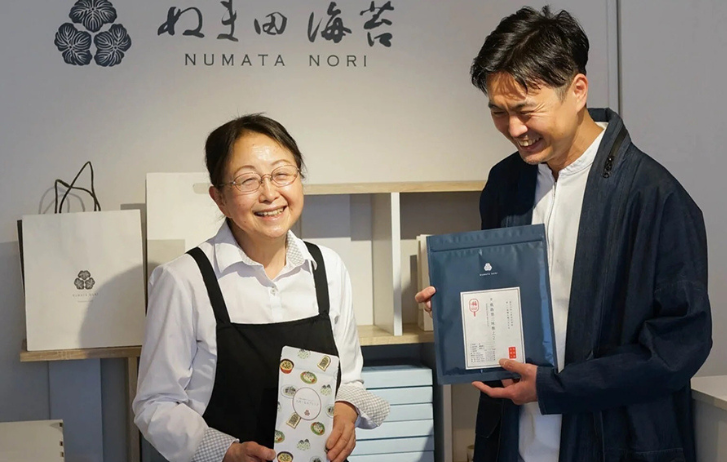
Numata Nori, The Fourth-Generation Edible Seaweed Shop Winning Global Fans
By FedEx | First published: March 11, 2024 Updated: May 27, 2025
Nori – dried edible seaweed – is a prominent ingredient in Japanese cuisine. One shop owner in Tokyo is exporting single-origin nori to the world, helping to drive demand for authentic Japanese products.
- Numata Nori is a fourth-generation small business selling authentic Japanese nori – edible seaweed – to customers for almost 90 years.
- With a strong online following, the business also pulls in a crowd of locals and tourists to its shop in Kappabashi, Tokyo.
- Head of the family business Shoichiro Numata actively incorporates customer feedback to improve his product offerings and uses social media to attract overseas fans.
Step into any Japanese convenience store, and chances are, you’ll be met with shelves stocked full of nori-wrapped onigiri (rice balls) and sushi rolls. In Japan, the crispy, umami-packed sheets of seaweed are an iconic part of the local food culture. They can be found in everything from home cooking to dishes served at Michelin-starred restaurants.
Besides being used to wrap rice and other foods, nori can be enjoyed in countless forms, including tsukudani, prepared by simmering the seaweed in soy sauce and mirin. Korean-style nori, seasoned with sesame oil and salt, is also widely available.
Thanks to the global popularity of Japanese food and a growing awareness of its nutritional benefits, nori is gaining international recognition beyond Asia.
In Japan, domestic consumption trends are changing
Despite a rising international profile, the domestic nori market has been in gradual decline since the 2000s. This is driven by rising prices and changing lifestyles, particularly among young people. Production is also affected by rising sea temperatures and damage caused by sea urchins, which eat seaweed.
According to a government survey, the amount spent on nori by younger households in 2023 was just half that of the national average. A study of Gen Z university students in Nagoya found that nori is mainly consumed through restaurants, takeaway, and deli food, and is no longer a household pantry staple.
A series of poor harvests in recent years is another contributing factor. In one region – Sanriku in northeast Japan – production of wakame (another type of edible seaweed) was down significantly, reaching its lowest level since records began in 1977 (excluding 2011, when the area was devastated by an earthquake and tsunami). Prices have increased as a result. With each of Japan’s regions producing different types of seaweed, from wakame to kombu, the impact on farmers and the consumer market can be specific to location and type.
But as one small business owner can attest, a drop in quantity doesn’t mean a drop in quality. Meet Shoichiro Numata, the fourth-generation head of Numata Nori: the first shop in Japan to specialize in rare, “first-pick” nori from the Ariake Sea.
Numata worked in the apparel industry for 17 years before returning to the family business. He has made it his mission to introduce high-quality, authentic nori to as many people as possible.
One positive step has been Numata’s decision to relocate to the Kappabashi kitchen town in Tokyo. The district boasts around 160 specialty stores attracting culinary professionals and tourists from all over the world.
Spreading the love of single origin seaweed
Numata Nori uses social media channels, its online shop, and word of mouth via in-store events and demonstrations to tell the single-origin seaweed story.
About 60% of seaweed produced in Japan hails from the Kyushu region, and nori grown in the Ariake Sea is particularly prized for its complex flavor. However, first-pick nori from this region accounts for less than 1% of all nori sold in Japan. This is because of unpredictable yields and difficulty handling the delicate sheets, which tear easily.
But this is where Numata Nori has found its niche as a small business, taking a terroir-driven approach to provenance.



Every year, Numata selects the best nori from different fishing grounds around the Ariake Sea, so the product line-up is always changing. To convey the subtle differences in taste by origin, Numata Nori uses the name of the fishing ground and quality grade of the nori to name each product.
The package label includes a chart showing flavor profile and texture, helping customers appreciate the characteristics of each location.
Numata has also found a way to make the most of the damage that inevitably occurs to about 10% of his delicate inventory. He puts on nori roasting demonstrations and gives out samples to customers at his store in Kappabashi.
Using customer feedback to improve the product
As a small business owner, Numata values the input of local customers and incorporates their feedback into product development. When a customer mentioned that the traditional full-size, 21cm x 19cm dried nori sheets were difficult to use in everyday meals, he introduced smaller cuts and finely chopped versions.
He has also developed close ties with fellow merchants in the Kappabashi neighborhood, who recommend Numata Nori to customers and visitors from overseas. Word of mouth has spread far and wide, with customers from all corners of the globe seeking Numata Nori’s unique seaweed.
While keen to share his expert knowledge with customers, Numata finds there is a lot to be learned from foreign visitors. When a customer from Italy mentioned that a particular line of nori matched well with gorgonzola cheese, he started exploring other food pairings, posting tips and findings on social media.



Gaining global fans through e-commerce and social media
Numata’s posts about the nori industry, new projects, and business insights have amassed nearly 11,000 followers on the popular Japanese blog platform, note.
Social media has played a key role in growing Numata Nori’s overseas fan base. Numata stresses that it’s important to get foreign customers to follow you on social media. Even if they’re impressed by the taste of the nori in the shop, it won’t mean much if they can’t remember the name of your store once they get home.
He also makes sure to hand out contact information and details on how to place international orders. To date, he has shipped nori to more than 15 countries, ranging from Europe to Australasia.
Reflecting on the changing domestic market, Numata shares, “With domestic consumption shrinking, it’s easy to feel insecure about our products. But in Kappabashi, I feel that traditional, high-quality Japanese goods are attracting attention from all over the world. We should feel confident enough to look beyond Japan.”
SHARE THIS STORY
- 85% Of APAC Businesses Plan To Expand Into Europe, According To New FedEx Report
- Generative AI: A New Frontier
- How To Ship A Giant Panda
- The Rise Of Intra-Asia Trade: Opportunities In The China-Southeast Asia Corridor
- Where Do Old Planes Go When They Retire?
- What’s So Dangerous About Coconuts? Your Guide To Dangerous Goods Logistics
Sign up now and save on your shipping rates!
Sign up now and earn discounts by shipping instantly with FedEx Ship ManagerTM at fedex.com.
Recommended For You

The Online Mall Bringing Japanese Brands To The World
An e-commerce platform curating Japanese products and souvenirs is experiencing a surge in cross-border sales as interest in Japanese brands grows.
Read More
How Japanese Crafts Are Finding New Audiences Online
Traditional Japanese art and craftsmanship has fascinated the world for centuries. Today, SMEs in Japan are adapting to the new e-commerce landscape.
Read More
Intra-Asia Trade: 5 Reasons Why SMEs Should Look Closer To Home
Thinking of expanding overseas? Here are five reasons why you should consider intra-Asia trade as a springboard for your global expansion.
Read More

